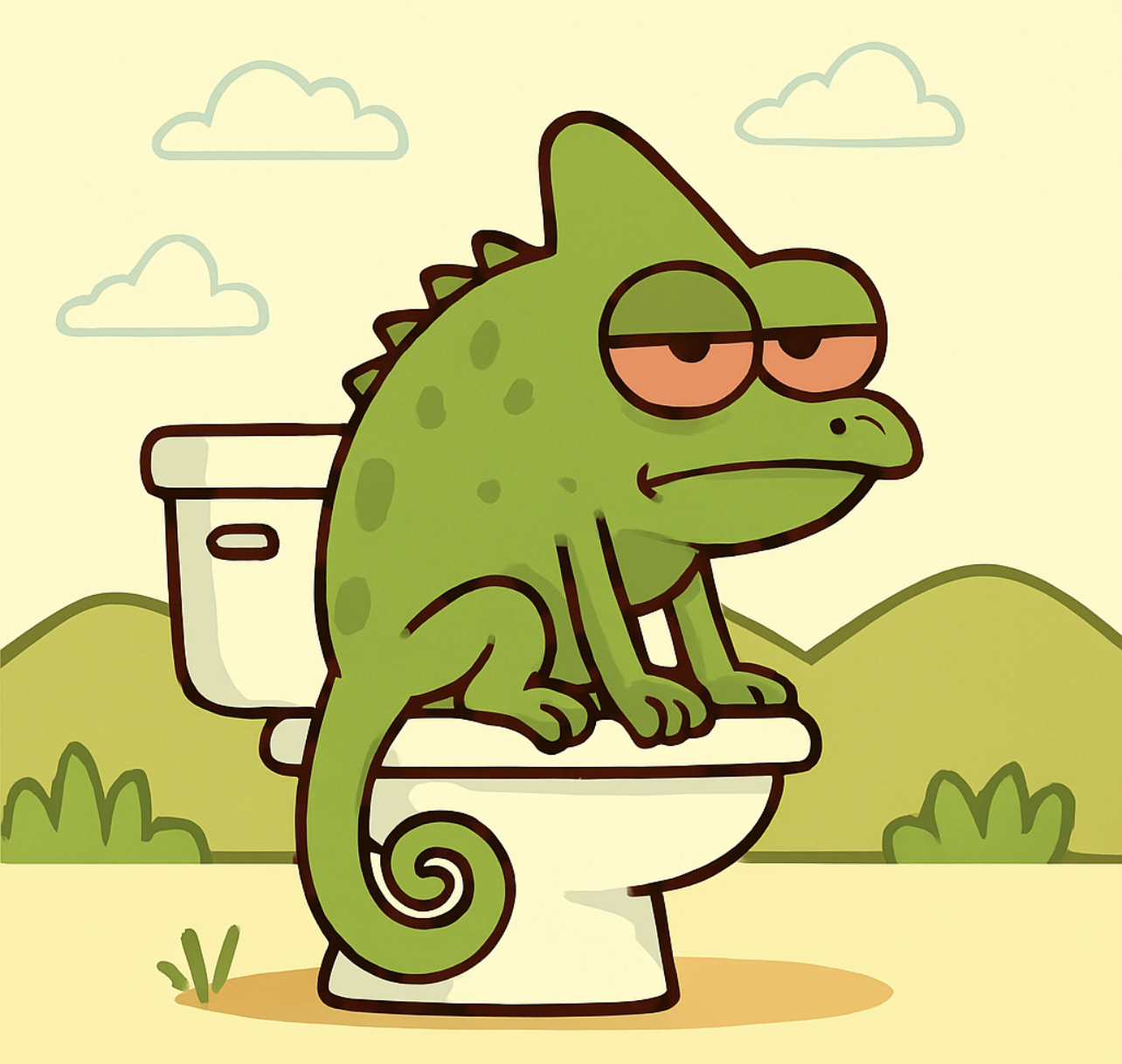How Often Do Chameleons Poop?

Understanding the frequency of chameleon defecation requires a grasp of key biological principles—specifically metabolism, digestion, anatomy, and physiology.
Metabolism refers to the sum of all chemical processes that occur within a living organism to maintain life.
Digestion is the breakdown of food into absorbable components, followed by the disposal of indigestible matter and toxins.
Digestive Logic and Function
Digestion serves two primary roles: meeting the organism's energetic needs and eliminating waste. This includes indigestible roughage, toxins, undigested matter, and excess water. Defecation is not time-based—it occurs on demand. When sufficient waste accumulates, defecation happens. When there is nothing to eliminate, chameleons do not defecate.
Chameleons are energetically low-level feeders and specialists in processing large amounts of indigestible material. Their digestive tract is extremely short and processes food rapidly. Most species feed primarily on insects and do not consume plants. Only a few species—Chamaeleo calyptratus, C. calcarifer, C. arabicus, C. zeylanicus, and Bradypodion damaranum—actively ingest leaves, not for nutrition but as roughage to aid digestion.
Factors Influencing Defecation Frequency
The frequency of bowel movements in chameleons is highly variable and influenced by multiple factors:
- Age and Size:
Younger chameleons may defecate daily; adults may defecate monthly.
- Metabolic Rate and Temperature:
Higher metabolic rates and warmer temperatures accelerate digestion and increase defecation frequency.
- Amount of Food:
More food leads to more frequent defecation. Overfed chameleons defecate often; starving ones may not defecate at all.
- Size and Frequency of Food Intake:
Frequent consumption of small prey (e.g., flies, bees) results in more regular defecation. In contrast, an adult Chamaeleo calyptratus that swallows a bird may not defecate for 6–8 weeks.
- Food Quality:
High-energy food with minimal roughage may reduce defecation frequency compared to diets rich in indigestible particles.
- Hydration:
Well-hydrated chameleons digest normally. Overhydrated individuals may defecate more often; underhydrated ones may retain feces to reabsorb water, defecating less frequently.
- Digestive Health:
Illness can impair digestion, causing food to decay in the intestines. Chameleons may vomit or defecate forcefully to avoid intoxication.
- Ingestion of Indigestible Matter:
Swallowing fake plant material, coconut fibers, sand, or dirt can lead to constipation and death.
- Seasonal Changes:
During rainy seasons or periods of abundant food, defecation is more frequent. In rest or brumation periods, it may cease for months.
- Parasites:
Some intestinal parasites slow defecation; others accelerate it.
- Weakness:
Weak individuals may defecate less frequently and with difficulty.
Constipation in chameleons
Constipation is very rare due to the chameleon's short intestine and efficient digestion. It typically occurs only when a large clump of indigestible material is swallowed—usually by accident or due to poor husbandry. Common causes include fake plants, long-leaved species like Dracaena, Yucca, Tillandsia, or moss. Chameleons may also swallow long pieces of grass, rope, or thread whole, as they cannot bite them into smaller pieces.
Constipation is often lethal and difficult to diagnose. Imaging techniques like X-rays or ultrasound can confirm it. Treatment may involve surgery or intestinal flushing. In mild cases, a few milliliters of undigestible olive oil may help facilitate passage.
Prevention and Best Practices
Fortunately, chameleons rarely suffer from defecation issues unless mistreated. To prevent problems:
Feed only natural, species-appropriate food.
Avoid oversized feeders or experimental diets.
Never use fake plants.
Remove all dangerous materials from the enclosure, including ropes, threads, moss, and long-leaved plants.
Do not panic if defecation is delayed.
If problems arise, consult a specialist or veterinarian.